Previous Lectureships
Information about previous Terry lectureships, including links to select video of past lectures, can be found by clicking on the headings below. Use the search fields to find lectureships by the name of the lecturer or the year.
2006 | Barbara Herrnstein Smith
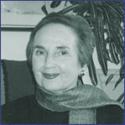
Natural Reflections: Human Cognition at the Nexus of Science and Religion
Barbara Herrnstein Smith is Braxton Craven Professor of Comparative Literature and English and director of the Center for Interdisciplinary Studies in Science and Cultural Theory at Duke University. She also holds the position of Distinguished Professor of English at Brown University.
After initially training in biology, experimental psychology, and philosophy at City College in New York, Smith attended Brandeis University, where she received her doctorate in English and American Literature. Before joining the faculty at Duke in 1987, she taught at Bennington College and at the University of Pennsylvania, where she held the position of University Professor. Her current teaching and research focus on twentieth century reconceptions of knowledge and science, contemporary accounts of language and cognition, the relations between the sciences and the humanities, and the naturalistic tradition in the study of religion.
Professor Smith has authored and edited a number of books and articles on language, literature, and critical theory, including Poetic Closure: A Study of How Poems End (1968), On the Margins of Discourse: The Relation of Literature to Language (1978), and Contingencies of Value: Alternative Perspectives for Critical Theory (1988). Her most recent books are Belief and Resistance: Dynamics of Contemporary Intellectual Controversy (1997) and Scandalous Knowledge: Science, Truth and the Human (2006).
She is a past president of the Modern Language Association and a member of the American Academy of Arts and Sciences. In 2001, she was named an honorary fellow of the American Association for the Advancement of Science “for distinguished contributions to…a common scientific and humanistic understanding of knowledge and its advancement.”
Lectures Available for Video Streaming
Natural Reflections: Human Cognition at the Nexus of Science and Religion
| October 17, 2006 | “The New Naturalism I: Cognitive Machinery” |
| October 19, 2006 | “The New Naturalism II: Evolutionary Riddles” |
| October 24, 2006 | “Deep Readings: The New Natural Theology” |
| October 26, 2006 | “Reflections: Science and Religion, Natural and Unnatural” |
Natural Reflections: Human Cognition at the Nexus of Science and Religion, the book based on her Terry lectures, is available from Yale University Press.
2006 | Terry Centennial Anniversary Conference
The Religion and Science Debate: Why Does It Continue?
The Dwight H. Terry Lectureship celebrated its 100th anniversary with a two-day conference entitled “The Religion and Science Debate: Why Does It Continue?” Public Broadcasting System journalist Margaret Warner moderated the closing panel of the two-day symposium, a schedule of which appears below. Video of select lectures are available by clicking the highlighted links below.
A book based on the conference, The Religion and Science Debate: Why Does It Continue? is available from Yale University Press.
Thursday, September 14, 2 pm
“No Contradictions Here: Science, Religion, and the Culture of All Reasonable Possibilities”
ROBERT WUTHNOW
Gerhard R. Andlinger Professor of Sociology and Director of the Center for the Study of Religion, Princeton University
Robert Wuthnow has conducted path-breaking research on diverse facets of American religion, including economics, politics, arts, and psychology.
Thursday, September 14, 4 pm
“Religion vs. Science? From the White House to Classroom”
LAWRENCE M. KRAUSS
Ambrose Swasey Professor of Physics, Professor of Astronomy, and Director of the Center for Education and Research in Cosmology and Astrophysics, Case Western Reserve University
Lawrence Krauss is a theoretical physicist with wide research interests, including the interface between elementary particle physics and cosmology, where his studies include the early universe, the nature of dark matter, general relativity, and neutrino astrophysics. He is the author of several bestselling books, including The Physics of Star Trek.
Friday, September 15, 9 am
“Science and Religion: Why Does the Debate Continue?”
ALVIN PLANTINGA
John A. O’Brien Professor of Philosophy, University of Notre Dame
Alvin Plantinga is a contemporary American philosopher known for his work in epistemology, metaphysics, and the philosophy of religion.
Friday, September 15, 11 am
KENNETH R. MILLER
Professor of Biology, Brown University
Kenneth R. Miller is a biologist who attempts to reconcile evolutionary theory with Christianity. He was an expert witness in the 2005 Dover, PA, lawsuit challenging a school board mandate to incorporate intelligent design into the curriculum.
Friday, September 15, 2 pm
“Aggressors, Victims, and Peacemakers: Historical Actors in the Drama of Science and Religion”
RONALD L. NUMBERS
Hilldale and William Coleman Professor of the History of Science and Medicine, University of Wisconsin-Madison
Ronald Numbers has written or edited more than two dozen books, including The Creationists, Darwinism Comes to America, and Disseminating Darwinism: The Role of Place, Race, Religion and Gender.
Friday, September 15, 4 pm
MARGARET WARNER, moderator
Senior Correspondent, “The NewsHour with Jim Lehrer”
Margaret Warner is a career journalist who spent ten years at Newsweek magazine before joining “The NewsHour with Jim Lehrer” in 1993.
2004 | David Sloan Wilson
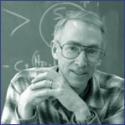
Evolution for Everyone
David Sloan Wilson is Professor of Biological Sciences with a joint appointment in Anthropology at Binghamton University (State University of New York). He is also director of EvoS, a program founded in 2003 that seeks to make evolutionary theory part of the common discourse for all subjects relevant to human affairs and the natural world.
Professor Wilson received his B.A. from the University of Rochester in 1971 and his Ph.D. in 1975 from Michigan State University. He originally planned to be an aquatic biologist but soon discovered that evolutionary theory provided a way to study the full pageant of life. His theoretical approach enabled him to conduct research on a diversity of subjects and organisms, from microbes to humans, and to publish in anthropology, biology, economics, philosophy, psychology and religion journals. He is author of The Natural Selection of Populations and Communities (1980), Unto Others: The Evolution and Psychology of Unselfish Behavior (with philosopher Elliott Sober, 1998), and Darwin’s Cathedral: Evolution, Religion, and the Nature of Society (2002). The Literary Animal: Evolution and the Nature of Narrative (with Jonathan Gottschall, 2005) represents an intellectual homecoming for Professor Wilson, as he is the son of novelist Sloan Wilson, author of The Man in the Grey Flannel Suit.
Professor Wilson is a past Guggenheim fellow (1986), Vice-President of the American Society of Naturalists (1997), and recipient of SUNY’s Chancellor’s Award for Excellence in Scholarship and Creative Activities (2003).
| January 18, 2005 | “A Sociological Breakthrough” |
| January 20, 2005 | “Groups as Organisms and Organisms as Groups” |
| January 25, 2005 | “The Human Social Organism” |
| January 27, 2005 | “Applied Evolutionary Theory” |
2003 | Mary Douglas

Writing in Circles: Ring Composition as a Creative Stimulus
The late Mary Douglas was one of the world’s leading intellectuals for fifty years. Her work as a cultural anthropologist, springing first from fieldwork in the Belgian Congo from 1949 to 1950, earned her early fame.
Two of her books in particular, Purity and Danger (1966) and Natural Symbols (1970), are true classics, studied by generations of scholars and graduate students. The range of her research was remarkable, from African societies to the classifications of biblical law, from sociology to religion, from food to dirt. Many of her ideas have become the “common sense” of several academic fields, influencing thought not only in anthropology, but also in the social sciences in general as well as history, literature, religious studies, and cultural studies.
Her work, as did her Terry Lectures, focused on the fundamentals of the way human beings think and perceive.
| October 21, 2003 | “How to Recognize a Ring Composition” |
| October 22, 2003 | “Structures in Alternating Bands of Light and Dark” |
| October 28, 2003 | “Straight Reading Makes Nonsense of Circular Writing” |
| October 30, 2003 | “Speculations on the Idea of a Major Cultural Change” |
2003 | H.C. Erik Midelfort
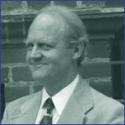
Exorcism and Enlightenment: Johann Joseph Gassner and the Demons of 18th-Century Germany
H. C. Erik Midelfort is the C. Julian Bishko Professor of History and Religious Studies at the University of Virginia, where he has taught since 1970. He has also taught at Stanford, Bern, Stuttgart, and Harvard Universities, and most recently was Visiting Scholar, Wolfson College, Oxford, England.
Born in Eau Claire, Wisconsin, in 1942, Professor Midelfort attended public schools until his matriculation at Yale University. After completing his B.A. in 1964, he continued at Yale, earning a Ph.D. in 1970. His dissertation, published as Witch Hunting in Southwestern Germany, 1562-1684: The Social and Intellectual Foundations, won the Gustav Arlt Award in the Humanities in 1973. His recent work in the complex history of psychiatry, folly, madness, and mental hospitals, has resulted in several articles and two books: Mad Princes of Renaissance Germany (1994) and A History of Madness in Sixteenth-Century Germany (1999), both of which won the Roland Bainton Prize of the Sixteenth Century Studies Conference for the best books of their years. The latter book also won Phi Beta Kappa’s Ralph Waldo Emerson Award.
| February 18, 2003 | “The Experience of Demons and Exorcism” |
| February 25, 2003 | “Healing: Gassner’s Patients and their Reports” |
| March 25, 2003 | “Interpretation: Enlightened and Traditional Biblical Views of Demons and Exorcism” |
| April 1, 2003 | “Conversation and Ridicule: The Structure of Enlightened Controversy” |
2001 | Francisco J. Ayala
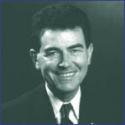
From Biology to Ethics: An Evolutionist’s View of Human Nature
Francisco J. Ayala—geneticist, evolutionary biologist, and philosopher of science—is one of the leading thinkers of our day. As society is confronted increasingly by the onrush of genomic research the ethical and moral implications of which have only barely begun to be perceived, he has elucidated the evolutionary transition from primates to humans with compelling insight. While rejecting the logical positivist view of ethics and morality in favor of the biological approach, he has charted a course significantly different than that of the socio-biologists, at once unique and synthetic.
As the Tercentennial Terry lecturer, he discussed the impact of the developments of modern biology on our ethical systems. The overall title for his lectures was: “From Biology to Ethics: An Evolutionist’s View of Human Nature.” The titles for his four lectures were: “The Emergence of Humankind;” “Good Natured: Animal Behavior and the Evolution of the Moral Sense;” “Biological Evolution versus Cultural Evolution;” and “Beyond Biology: The Evolution of Moral Codes.”
Professor Ayala is the Donald Bren Professor of Biological Sciences and Professor of Philosophy at the University of California, Irvine. He has been President and Chairman of the Board of the American Association for the Advancement of Science. From 1994 to 2001, he was a member of the U.S. President’s Committee of Advisors on Science and Technology.
Born in Madrid, Spain, Professor Ayala has lived in the United States since 1961 and became a U.S. citizen in 1971. He has published more than 750 articles and is author or editor of 15 books. The books include: Variation and Evolution in Plants and Microorganisms (2000); Genetics and The Origin of Species (1997); Tempo and Mode in Evolution (1995); Modern Genetics (2nd ed., 1984); Population and Evolutionary Genetics: A Primer (1982); Evolving: The Theory and Processes of Organic Evolution (1979); Evolution (1977); Molecular Evolution (1976); and Studies in the Philosophy of Biology (1974).
Professor Ayala is a member of the National Academy of Sciences, the American Academy of Arts and Sciences, the American Philosophical Society and a fellow of the American Association for the Advancement of Science and the California Academy of Sciences. He has been a Guggenheim Fellow and was a Fulbright Fellow twice.
| October 15, 2001 | “The Emergence of Humankind” |
| October 16, 2001 | “Good Natured: Animal Behavior and the Evolution of the Moral Sense” |
| October 18, 2001 | “Biological Evolution versus Cultural Evolution” |
| October 19, 2001 | “Beyond Biology: The Evolution of Moral Codes” |
2000 | Peter Singer
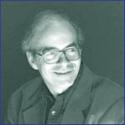
One World: The Ethics and Politics of Globalization
Peter Singer is among the most influential and most controversial moral philosophers alive. Positing a utilitarian view, he has helped shape debates worldwide concerning animal rights and the ethical dilemmas posed by new medical technologies that blur the boundaries between life and death. He has also made significant contributions to debate about international economic justice, in which he has long been interested.
In his Terry lectureship he discussed ethical problems related to globalization. The overall title for his lectures was: “One World: The Ethics and Politics of Globalization.” The titles for his four lectures were: “Ethics for One World;” “One Environment;” “One Economy;” and “Ethics and Politics.”
Professor Singer joined the University Center for Human Values at Princeton University as Ira W. DeCamp Professor of Bioethics in 1999. Founded in 1990, the Center supports teaching and research about ethical and evaluative issues in public and private life.
Born in Melbourne, Australia in 1946, Professor Singer was educated at the University of Melbourne and the University of Oxford. He has taught at the University of Oxford, New York University, and La Trobe University. In 1977, he was appointed to a chair in philosophy at Monash University in Melbourne and subsequently was the founding director of that university’s Centre for Human Bioethics.
Professor Singer was the founding president of the International Association of Bioethics and, with Helga Kuhse, founding coeditor of the journal Bioethics. He first became well known internationally after the publication of his book Animal Liberation in 1975. His other books include Democracy and Disobedience; Practical Ethics; The Expanding Circle: Ethics and Sociobiology; Marx; Hegel; Animal Factories (with Jim Mason); The Reproduction Revolution (with Deane Wells); Should the Baby Live?: The Problem of Handicapped Infants (with Helga Kuhse); How Are We to Live?: Ethics in an Age of Self-Interest; Rethinking Life and Death: The Collapse of Our Traditional Ethics; and Ethics into Action: Henry Spira and the Animal Rights Movement. Singer’s works have appeared in nineteen languages. He is also the author of a major article on ethics in the current edition of the Encyclopedia Britannica.
| October 31, 2000 | “Ethics for One World” |
| November 2, 2000 | “One Environment” |
| November 8, 2000 | “One Economy” |
| November 9, 2000 | “Ethics and Politics” |
Singer’s book, One World: The Ethics and Politics of Globalization, published from the lecture is available at Yale University Press.
1999 | Bas C. Van Fraassen
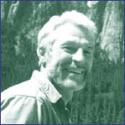
The Empirical Stance
Bas C. van Fraassen joined Princeton University’s Department of Philosophy in 1982. His interests include philosophy of science (especially subjects related to probability theory and to the foundations of physics), philosophical logic, and empiricism. He is the author of An Introduction to the Philosophy of Time and Space (1970), Formal Semantics and Logic (1971), The Scientific Image (1980), Laws and Symmetry (1989), and Quantum Mechanics: An Empiricist View (1991).
Born in Goes, the Netherlands, in 1941, Professor van Fraassen immigrated with his family to Canada in 1956. He attended the University of Alberta (B.A.(Hon.), Philosophy, 1963), and the University of Pittsburgh (M.A. 1964; PH.D., Philosophy, 1966). He has taught at Yale University, the University of Toronto, the University of Southern California, and Princeton University. He is editor of the Journal of Philosophical Logic and co-editor of the Journal of Symbolic Logic. He is a Fellow of the American Academy of Arts and Sciences, and a Foreign Member of the Royal Netherlands Academy of Arts and Sciences.
Lecture Series
The Empirical Stance
| October 19, 1999 | “Against Analytic Metaphysics” |
| October 21, 1999 | “Empiricism as Will and Idea” |
| October 26, 1999 | “Scientific Revolution/Conversion as a Philosophical Problem” |
| October 28, 1999 | “What is Science—and What Is It To Be Secular?” |
van Fraassen’s book, The Empirical Stance, published from the lecture, is available at Yale University Press.
1998 | David Hartman
Struggling for the Soul of Israel: A Jewish Response to History
Not in Print
1996-97 | Reverend John Polkinghorne
Belief in God in an Age of Science (published in 1998)
Available at Yale University Press
1993-4 | Walter J. Gehring
Genetic Control of Development (Master Control Genes in Development and Evolution: the Homeobox Story, published in 1998)
Available at Yale University Press
1988-89 | Joshua Lederberg
Science and Modern Life
1986-87 | Eric R. Kandel
Cell and Molecular Biological Explorations of Learning and Memory
1985-86 | Stephen Jay Gould
Darwin and Dr. Doolittle: ‘Just History’ as the Wellspring of Nature’s Order
1979-80 | Hans Jonas
Technology and Ethics (The Imperative of Responsibility, published in 1984)
Not in Print